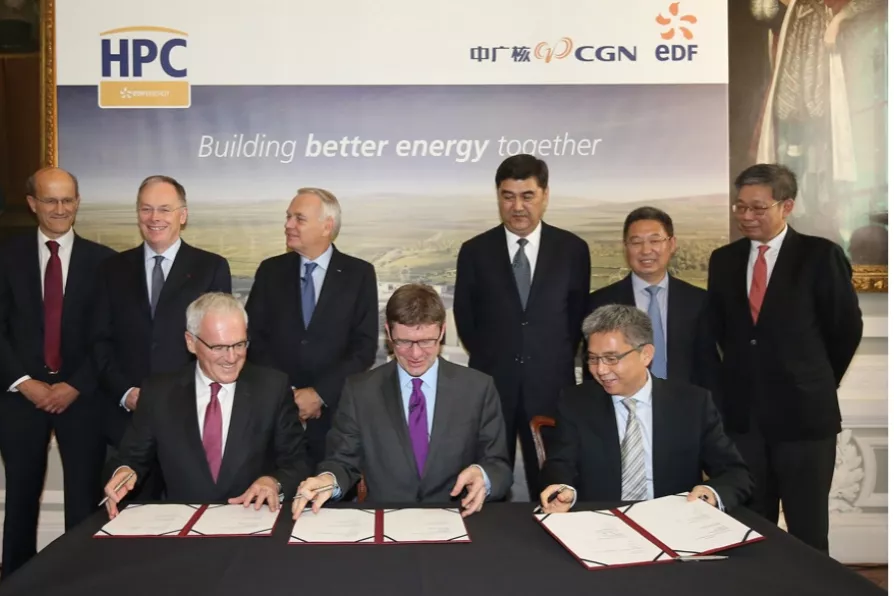The Carpathia isn’t coming to rescue this government still swimming in the mire, writes LINDA PENTZ GUNTER
Nuclear-powered crony capitalism
SOLOMON HUGHES explains how the Tories bailed out Hitachi to save billion-pound atomic Anglesey deal

 EDF Group chairman Jean-Bernard Levy chairman of EDF Group, Energy Secretary Greg Clark and China General Nuclear chairman He Yu signing the Hinkley Point deal two years ago
EDF Group chairman Jean-Bernard Levy chairman of EDF Group, Energy Secretary Greg Clark and China General Nuclear chairman He Yu signing the Hinkley Point deal two years ago
ENVIRONMENT Secretary Michael Gove promised earlier this month to crack down on “crony capitalism.”
At the same time his cabinet colleague Energy Secretary Greg Clark was offering a £5 billion bailout to Japanese nuclear firm Hitachi. It looks like a classic crony capitalist deal.
Gove argued: “Crony capitalists have rigged the system in their favour and against the rest of us.”
Similar stories

The Communist Party of Britain’s Congress last month debated a resolution on ending opposition to all nuclear power in light of technological advances and the climate crisis. RICHARD HEBBERT explains why

Despite using female spokespeople for its campaigns against clinic buffer zones, ADF UK’s board consists entirely of men, with 80 per cent living outside Britain and most funding from its US parent, reveals SOLOMON HUGHES

The government’s nuclear power expansion plan is a hollow betrayal of working people that panders to wealthy corporations and will rip off consumers, writes LINDA PENTZ GUNTER












